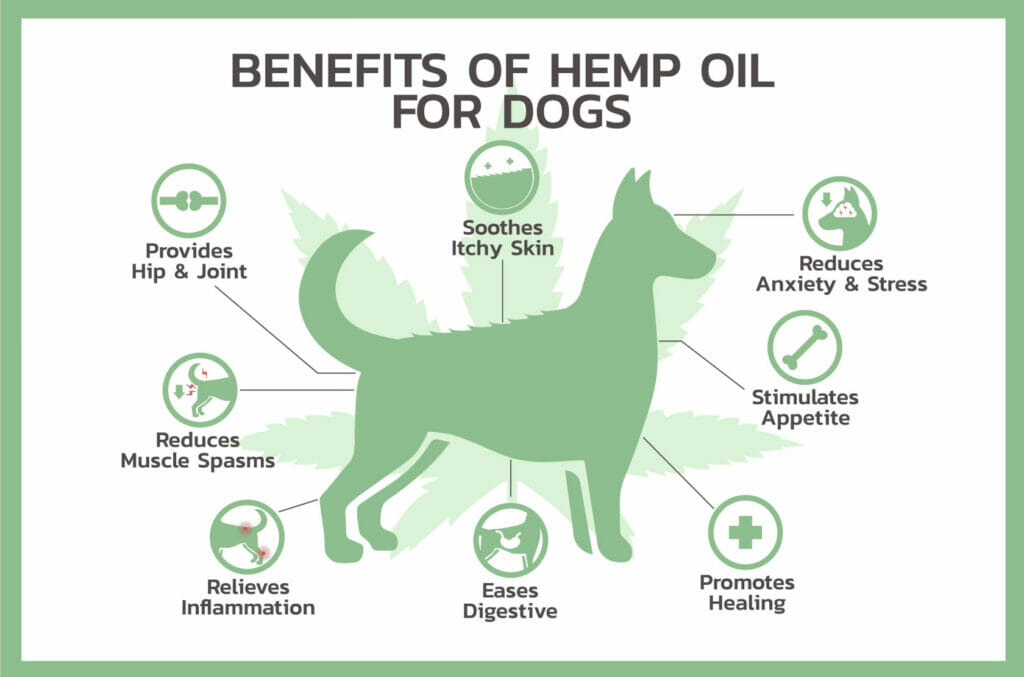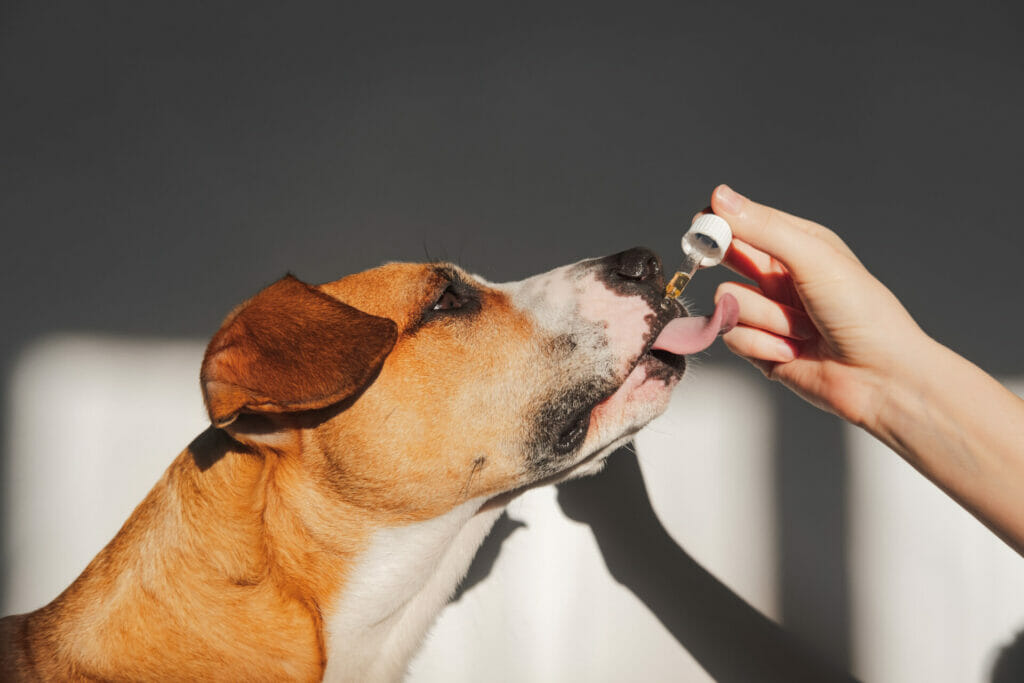What is CBD?
No, NOT marijuana. CBD, meaning cannabidiol, is a natural occurring compound that is found within a cannabis plant. CBD has no euphoric effects and will NOT get your dog high. Cannabidiol has grown increasingly popular in the dog community as a holistic approach to treating specific problems, both healthwise and behavioral.
Because our animal’s endocannabinoid system is made up of special receptors that can interact with CBD. There are two types of receptors within the endocannabinoid system, CB1, and CB2. These receptors are near the brain and the central nervous system as well as the body’s immune system and peripheral organs. According to Blooming Culture, a trusted plant-derived company, CBD interacts with these receptors which regulate mood, sleep, pain, memory, appetite, inflammation, nausea, and stress levels.
Claims of CBD Benefits

Helps Anxiety
Noise reactivity, fearfulness, and separation anxiety are some of the leading behaviors that have encouraged pet owners to pursue cannabidiol. With countless claims of success, there have been many studies since that have confirmed CBD truly helps calm your dog’s anxiety.
A fellow dog parent from CBD Dog Health claimed that after using oil, her dog’s anxiety was completely eliminated. “Molly’s anxiety was reduced after the first use of CBD. Within a week, her anxiety was completely eliminated. Molly still uses as needed.”
Although the same results are not guaranteed for all dogs, studies show that CBD works by interacting with the body’s naturally occurring endocannabinoid system. According to the Relievet website, two different studies, from 2011 and 2019, confirmed that CBD helped reduce anxiety levels in people suffering from Seasonal Affective Disorder and PTSD. The close association between human and dog ECS systems indicates similar benefits for dogs.
Helps Seizures
Based on research by Dr.Stephanie McGrath, a neurologist at Colorado State University, she found that 89 percent of dogs who received CBD in the clinical trial had a reduction in the frequency of seizures. This study alone supports countless testimonies that have been given by people who have dogs that suffer from epilepsy or other forms of seizure disorders.
Caitlyn’s testimony from Dope Dog, “We have been dosing 6 mg per his 60 lbs as recommended for two months and I have only noticed two minor seizures since. He used to have seizures almost daily.”
How It Helps With Cancer
Although according to Dr. Klein with the American Kennel Club, there is no conclusive data on this use, many testimonies have shown that cannabidiol can assist in cancer-causing symptoms such as pain, inflammation (also a symptom of arthritis), anxiety, and nausea. And although data is limited, there have been studies that have shown cannabidiol slowing the growth of tumors. In addition, some studies even proved that CBD caused a significant decrease in cancer cell reproduction.
The bottom line, although it is unclear how well cannabidiol will work against your dog’s cancer. It is worth a try and at the very least, you will be able to ease some of the side effects and ensure your dog is living more comfortably for as long as possible.
Choosing The Right One For Your Dog
If you think cannabidiol might be a good option for your dog, be sure to have a veterinarian consult before starting to ensure it does not conflict with any other medicine your dog may be currently taking. In addition, it is important to investigate different companies to ensure you are purchasing an oil from a reliable source.
According to The Bark website, here are just a few things to look for before purchasing:
- Ensure the company sources their CBD from sustainable hemp farmers with soil that is free of harmful toxins
- Make sure they list both active and inactive ingredients found in the products
- Does the company show an interest in overall animal welfare? This may be shown by a portion of sales being donated to an animal organization or if they have notable charitable partners.




















